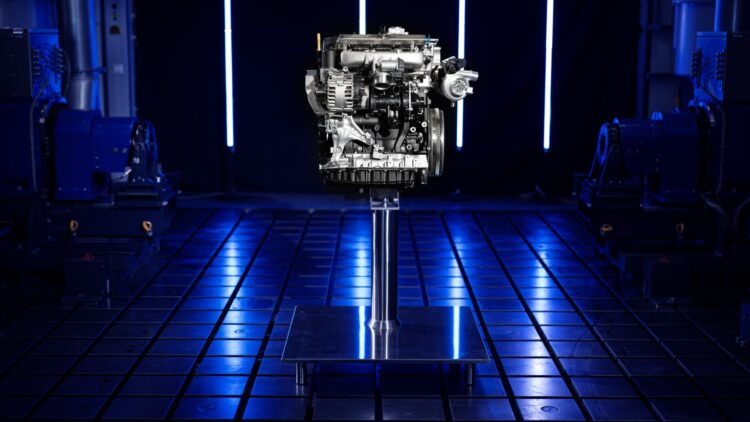The automobile sector is experiencing an unprecedented development that may mark the beginning of the post-EV period. Engineers have been searching for a suitable replacement for fossil fuels for years, and now, hydrogen combustion technology with water injection systems is here.
As AVL RACETECH developed a hydrogen engine that can deliver up to 400 horsepower and 6,500 RPM lately, the notion of a “water engine” is no longer science fiction. In this piece, we look at what this technological advancement means, what it could bring, and what it means to contend with.
Hydrogen combustion engines: A cleaner and more powerful alternative to EVs
Hydrogen combustion engines are no longer a dream of the future. One of the existing proofs of this technological advancement is AVL RACETECH’s hydrogen engine, which produces 400 horsepower. Hydrogen engines are different from electric vehicles, where the car uses batteries and charging infrastructure; hydrogen is a fuel that has water as a product.
The current delivered by this technology is high and carbon-free, and the secret to this technology is how hydrogen is combusted. Hydrogen engines are about reducing gas emissions and achieving the power, torque, and fuel efficiency of regular gasoline engines.
Features like water injection to control combustion make the AVL engine a high performer with a low risk of preignition – a safety concern. While hydrogen combustion technology comes into focus, it may open a bright new avenue for green mobility in the automotive and motorsport segments.
Water injection is one of the most unique aspects of AVL RACETECH’s hydrogen combustion engine. Hydrogen is a highly reactive fuel that creates problems like preignition, which may harm the engine.
Water injection prevents this by cooling the combustion chamber, thus preventing rapid combustion. This method increases the efficiency and durability of the engine apart from increasing engine speeds and power output.
This makes it possible to use hydrogen combustion in motorsport applications, where high power and reliability are required. This technology guarantees that the engine can generate ample horsepower with a relatively small danger of mechanical breakdown and is beneficial to the environment as the only emission produced is water vapor.
If more engines incorporate that method, that might become the industry norm for internal combustion engines’ performance and sustainability.
Hydrogen combustion in motorsports: A glimpse of the future in racing technology
Hydrogen combustion engines, especially for motorsport racing, signify a progressive advancement in the search for sustainability in high-performance racing. The hydrogen engine of AVL RACETECH was developed for motorsport, where its high power of more than 400 horsepower and maximal speed of 6,500 RPM was demonstrated.
This performance level is as powerful as standard racing engines – indicating that hydrogen combustion can deliver enough power for motorsport competition. The use of hydrogen engines in motorsport corresponds to the greater emphasis on green technologies when it comes to racing.
The automobile industry has turned its eye to hydrogen as the possible fuel of the future, as races as prestigious as the Le Mans 24 Hours plan to incorporate hydrogen classes by 2027.
If racing organizations and manufacturers push hydrogen as a better option, it could soon become the new face of motorsport: cleaner and sustainable motorsport.
Hydrogen combustion engines have enormous potential, but engineers face specific problems. For instance, storage of fuel, management of hydrogen gas, and other requirements such as engine stability at higher performance levels are some of the challenges that require solutions.
AVL RACETECH has come a long way in eradicating such challenges, especially by installing water injection systems to ensure the engine is not compromised. Also, the equipment, including hydrogen refueling stations, required for hydrogen-powered vehicles still poses a challenge.
With technology advancing and more people adopting the use of hydrogen, we may find ourselves with hydrogen combustion engines as a solution for commercial vehicles, sports cars, and heavy transport when looking for an engine that is not driven by fossil fuel.
A new era of sustainable power: Hydrogen engines could signal the end of EV dominance
The ability of AVL RACETECH to design and create such an engine to power a car to achieve its record-setting times is not just a technical marvel but the future of environmentally friendly vehicles. As engines capable of yielding high performance while at the same time not emitting any fossil fuel-related pollution, hydrogen engines are pointed towards a future of environmentally friendly motoring.
Hydrogen combustion with water injection technology proves that sustainable power is compatible with performance, making it viable for motorsport and other applications.
This research reveals that as the global community seeks environmentally friendly options, hydrogen combustion engines are a force to be reckoned with when competing against fossil fuel engines.
Even though the market for electric cars has expanded considerably, the introduction of the hydrogen engine, particularly the water injection system, could mark the decline of the dominance of EVs and a new era in the automobile industry.

